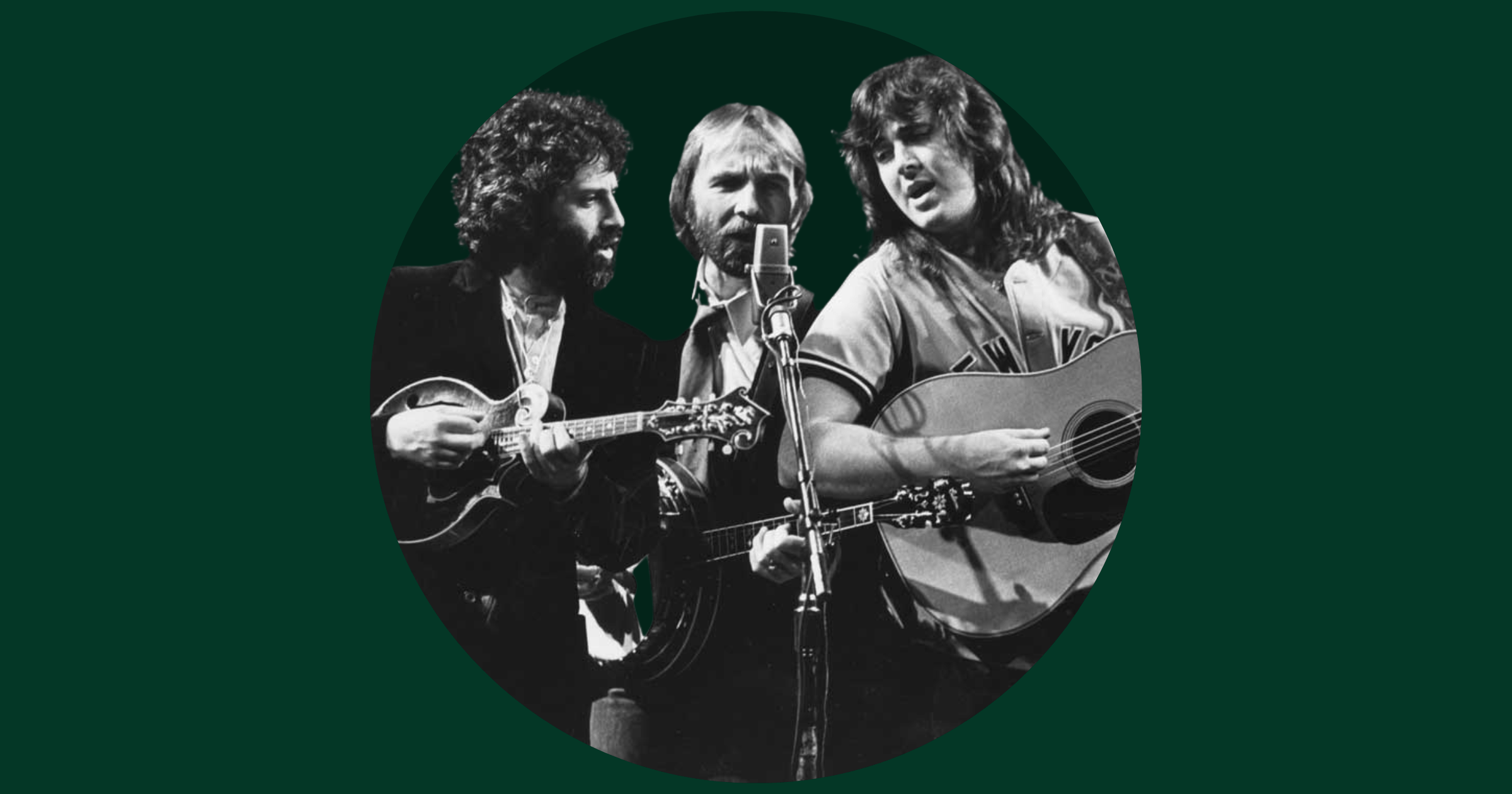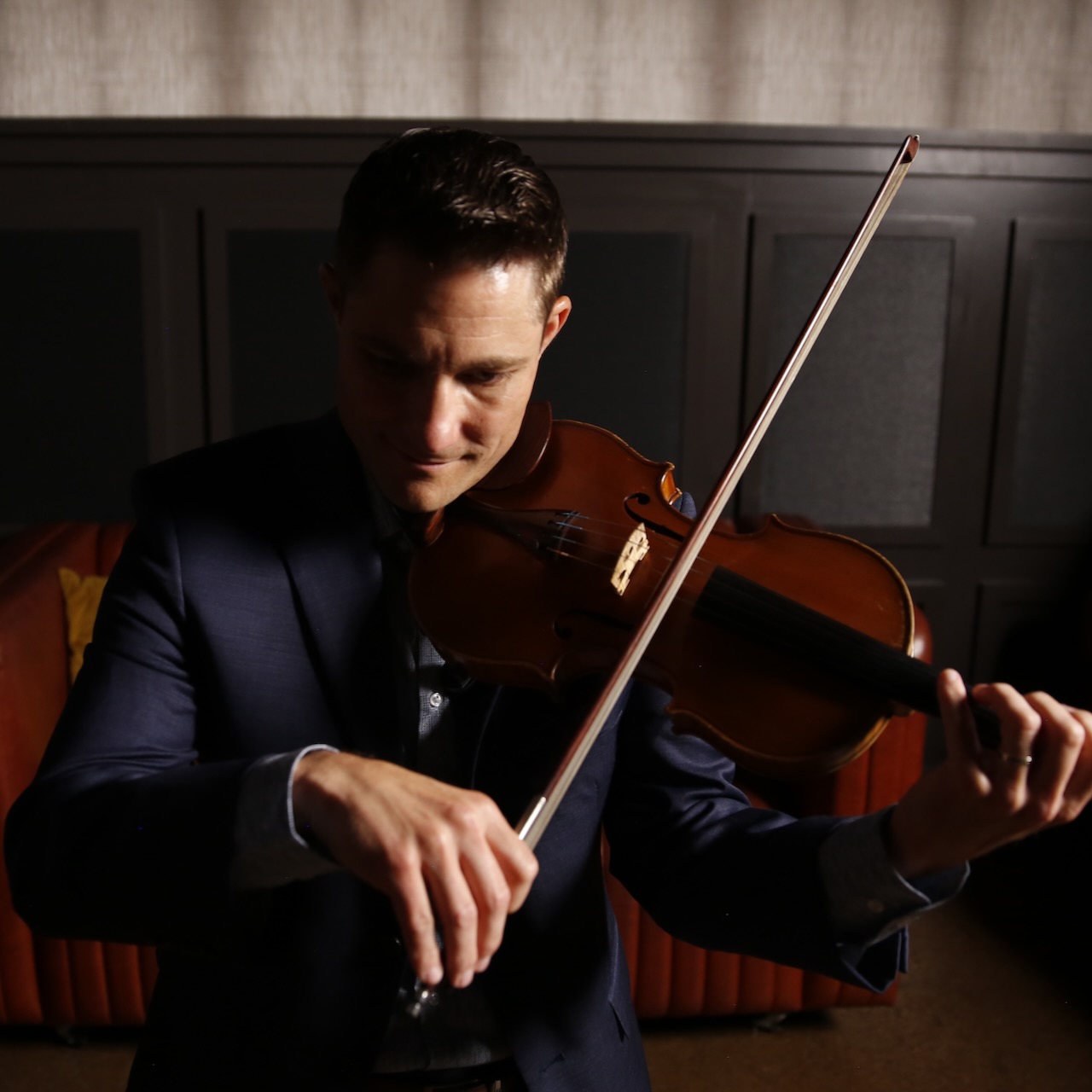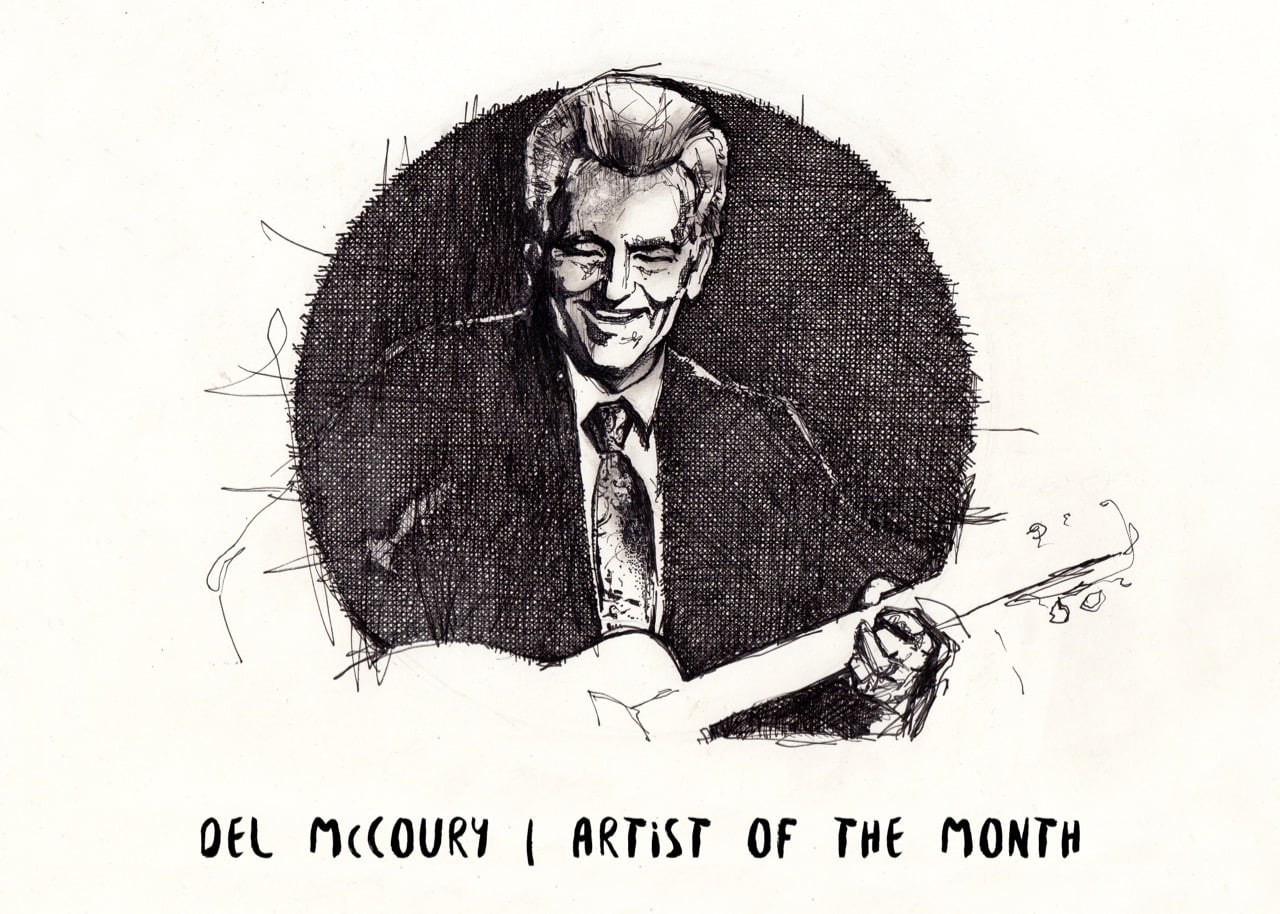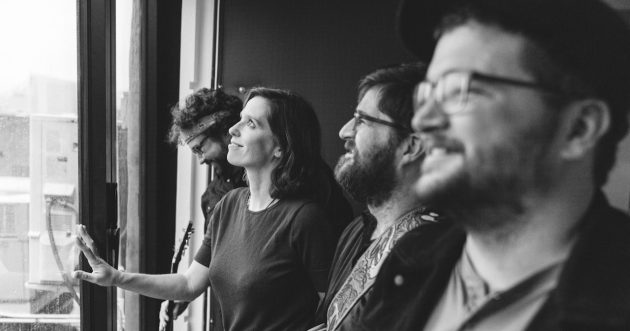To complete our Dawg in December Artist of the Month series, we asked several musicians who have worked with and made music with the inimitable David Grisman what it’s like to really know him.
A mythological figure in American roots music, the Dawg remains remarkably accessible and embedded in the scene, despite his unofficial role as a sort of guru-meets-mentor-meets-hermit. He’s been a teacher and encourager of multiple new generations of pickers and mandolinists, from Grammy-nominated Ronnie McCoury to young, impressive upstarts like Teo Quale – who, with his brother Miles and band, Crying Uncle, performed for Dawg’s Bluegrass Hall of Fame induction at IBMA’s annual awards show in September. Others, like fellow Hall of Famer Alice Gerrard, began their friendships with Grisman long ago, before his skyrocketing notoriety and impact.
We asked these three pickers and friends of Dawg – Gerrard, McCoury, and Quale – to reflect on their relationships with the man, who despite being placed high upon a pedestal by many in bluegrass, new acoustic, and old-time music, remains a grounded and down-to-earth mandolin player with an extraordinary legacy.
Alice Gerrard
Alice Gerrard: “I remember sort of my first impression of David – I think it also was Hazel’s too, because he was this very young looking kid from New York, but he played this great mandolin. It was kind of, “What’s going on here?” you know, but the thing that really stands out in my mind is when we were riding to New York [once]. I don’t remember, it might have been my van, but it was a van, and we were going there to record the second Folkways album.
“I think that’s the one that had, ‘The One I Love is Gone.’ We were on our way to record that album in New York and Peter Siegel – who is a friend of David’s and I think Peter was the one who suggested that David play mandolin on the album, because we didn’t really know David at that point. But we did trust Peter. So, David is in the band with us and and we were practicing that song as we were driving up to New York from D.C.
“Hazel was singing the tenor, and I was singing the lead, and there was a problem. Because, you know, often those Bill Monroe harmonies are kind of a mix of major against minor and stuff like that. Hazel was having a hard time getting it, but I’m not. (I’d have to go back and really think about whether she had it right and Peter and David had it wrong.) But it ended up with David lying on the floor of the van between the front and back seats. I don’t know why he was doing that, but he was lying on the floor and singing it with Hazel, trying to get her to find this particular note.
“It was just hilarious! I mean, it was like, I don’t know, two or three hours worth of David’s face, singing ‘The One I Love Is Gone,’ and him fairly well convinced that she did not have the right note. I don’t remember. I mean, I don’t remember the specifics of that, but it was hilariously funny, and of course, what she ended up with was great, but I’m not sure whether he was trying to get her to hit a minor note or what.
“He was just this little kid, you know? From New York. And played this great mandolin. It was beautiful what he did on that song.
“I had to think about how we first met him and how we first decided to record. So I called Peter Siegel on the phone and he told me that he was the one– I mean, David was a friend of his in New York. [Peter] came down to D.C. with David. They were going to go to this bluegrass show, but that got rained out, so they didn’t go. They canceled the show. They [both] heard about this party. I remember where it was. It was at my cousin’s house, who at that time was living sort of on the edge of Georgetown.
“And so, according to Peter, they just came to the house and Hazel and I were sort of sitting somewhere singing together. It was Peter’s idea to use David. And I’m so happy that we did because yeah, he’s amazing.”
Ronnie McCoury
Ronnie McCoury: “When I started playing music, I started playing the mandolin with my dad. I was 14 ‘81– like ‘82 or ‘80, somewhere around there, either before I started playing or right after. My dad got this package in the mail and David had gotten a hold of him and said, ‘I found these tapes of a show we did in Troy, New York in 1966.’ And it was my dad, David, Uncle Jerry [McCoury], and Winnie Winston. [Dawg] said, they sounded pretty good and he’d like to put them out. So he did. It’s called Early Dawg on Sugar Hill. It was half this live stuff and the other half was studio. Along with that package he sent a couple albums of his stuff.
“I mean, that’s just how he is, you know? He just sent this along. He didn’t even really know that I was playing music at the time. I had no idea he was a California guy. I found these albums [he had sent], I had never heard anything like that played on a mandolin, because I was just [getting started]. You know, I’m a child of bluegrass. I was born into it. My dad started a band in ‘66. I was born in ‘67. [It’s] always been a part of me.
“This new music I was hearing, I couldn’t even grasp it. I didn’t know what it was, but I went to bed at night all through my teens putting his albums on and it would play one side and I’d be usually asleep by that time. I did that basically every night to David’s records.
“When I was probably 18 or so, David called my dad and said, ‘Hey, I want to do some bluegrass and I want to do this thing called the David Grisman Bluegrass Experience and we’ll do some shows.’ Basically, it was my dad’s band [backing him up]. We did that quite a bit, for a year or two – just on and off.
“I got to know David and every time we go west, we always were basically playing Northern California and either Grass Valley, California – for the festival – or touring out there playing with my dad. It was just starting for my dad a lot more in the West. He’d been going there for years, but sporadically, and we’d always wind up going to the Dawg’s house. I had been playing a Kentucky mandolin, and he told me, ‘Hey, I got a mandolin at my house for you.’ And I never thought anything about it, and I surely wouldn’t ask about it.
“My dad went out, while we were still in Pennsylvania, and he recorded with David for what is called Home is Where the Heart Is. Dad did a show at the Great American [Music Hall], I think, with Dawg, and he came home with this Gilchrist mandolin. The neck was coming out of it at the time and I had a guy repair it – Warren Blair, who was playing the fiddle.
“He laid that mandolin on me, I believe I was probably 19 or 20, and it’s the same one I play today. I’m 56. I got a Loar 10 years ago and played it a little while, but David and Sam Bush and all my peers said, ‘Hey man, stay on that Gilchrist.’ So I stuck with it. I owe him such a debt. He gave me something that is such a part of me, it defines me, I guess. I’ll tell you, it’s his giving heart. He has a huge heart.”
“My dad met David in 1963. He was playing with Bill Monroe and Ralph Rinzler was his manager at the time– Bill’s first manager. He played in New York somewhere and they stayed at David’s house. David’s father passed when he was 10 and his mother, I can’t remember if his mother was even there, but my dad would have been 24. [Dawg] would have been six years younger than my dad. He was a teenager, you know. I don’t know if Monroe did, but my dad wound up staying with David, because Ralph put him there. He and my dad go back to when he was a teenager. There’s such a long friendship there.
“One time, we were at Grass Valley and Dawg said, ‘Have you heard of this kid?’ He comes riding up on a little bicycle with his mandolin on his back and I said, ‘Well, I’ve heard the name Nickel Creek, but I didn’t really know much.’ He says, ‘Chris Thile’s his name.’ He comes riding up, you know, and he jumps off his bike and he wants to play for David.
“We’re standing around picking and [Chris] sings, ‘Roll in My Sweet Baby’s Arms’ – super high, you know – and he’s playing. David said, ‘Hey, man, do you know this tune?’ And he starts playing ‘Big Mon.’ Or ‘Monroe’s Hornpipe,’ I think it was. [Thile] didn’t know it, so David’s playing it and he starts showing him it. And [Chris is] just like a sponge. He starts just running it real slow, then he’s like, ‘Oh, that’s neat!’ And he hops on his bike and he’s off. Like an hour or so later, he comes riding up, jumps off his bike, and he’s got it down. It was pretty neat to see David show him.
“The first time I ever heard or met Jake Jolliff was with David. The first time I ever met Julian Lage was with David. Both of those guys, probably at the time, were 10 and 11, something like that.”
Teo Quale
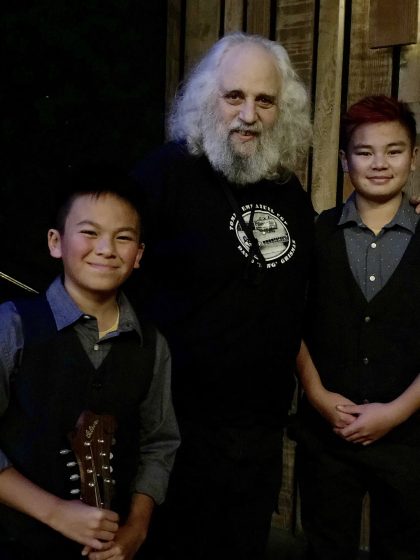
Teo Quale: “I first met Dawg as a young kid at a Manning Music event when I was about 6 or 7 – so about 10 years ago. Actually, the first time I was around David was when I was still a baby, but I don’t really remember that!
“Anyway, he jammed a bit with us and Tracy played bass. He and Chad [Manning] played later on. At the time, I was playing fiddle and I really wanted to start learning the mandolin, but my fingers weren’t strong enough yet. So, my mother got me a ukulele and replaced the strings with ones tuned in fifths. Then about a year later, I finally started on the mandolin.
“David has been an inspiration to me ever since meeting him. Over the years, I’ve also had the opportunity to take some lessons with him and he’s always been really generous with his time and his knowledge, but always in that relaxed Dawg way. His music has influenced the way I approach every aspect of my playing, from improvisation to composition.
“Most of my other heroes were also greatly influenced by David – Mike Marshall, Darol Anger, Ric [Robertson] and [Dominick Leslie]. I’m thankful that I get to call him a friend and that I’m also around so many musicians who were touched by him. I don’t get to see him as often as I’d like, but we keep in touch.
“He was born on the same day and year as my grandfather, both two really special people in my life. I play one of his old mandolins now (made in 2006, the same year I was born!), and I am thankful each time I pick it up, knowing that a part of Dawg will always be in this instrument.”
Photo Credit: Courtesy of Acoustic Disc.
